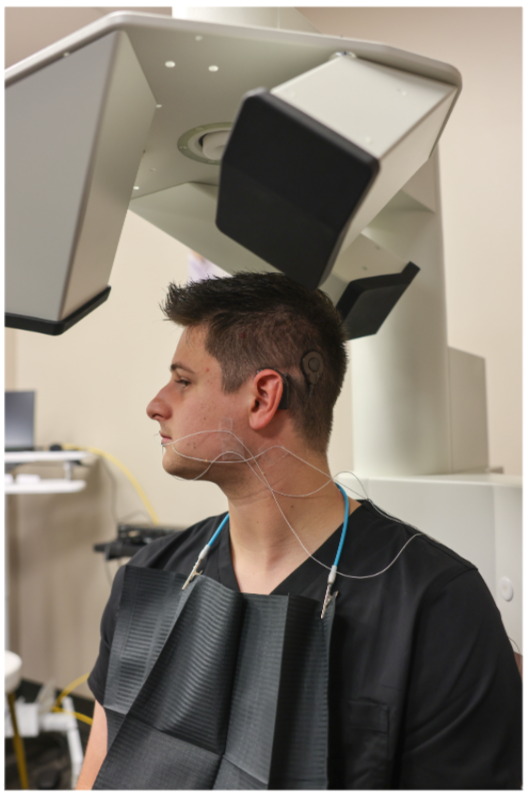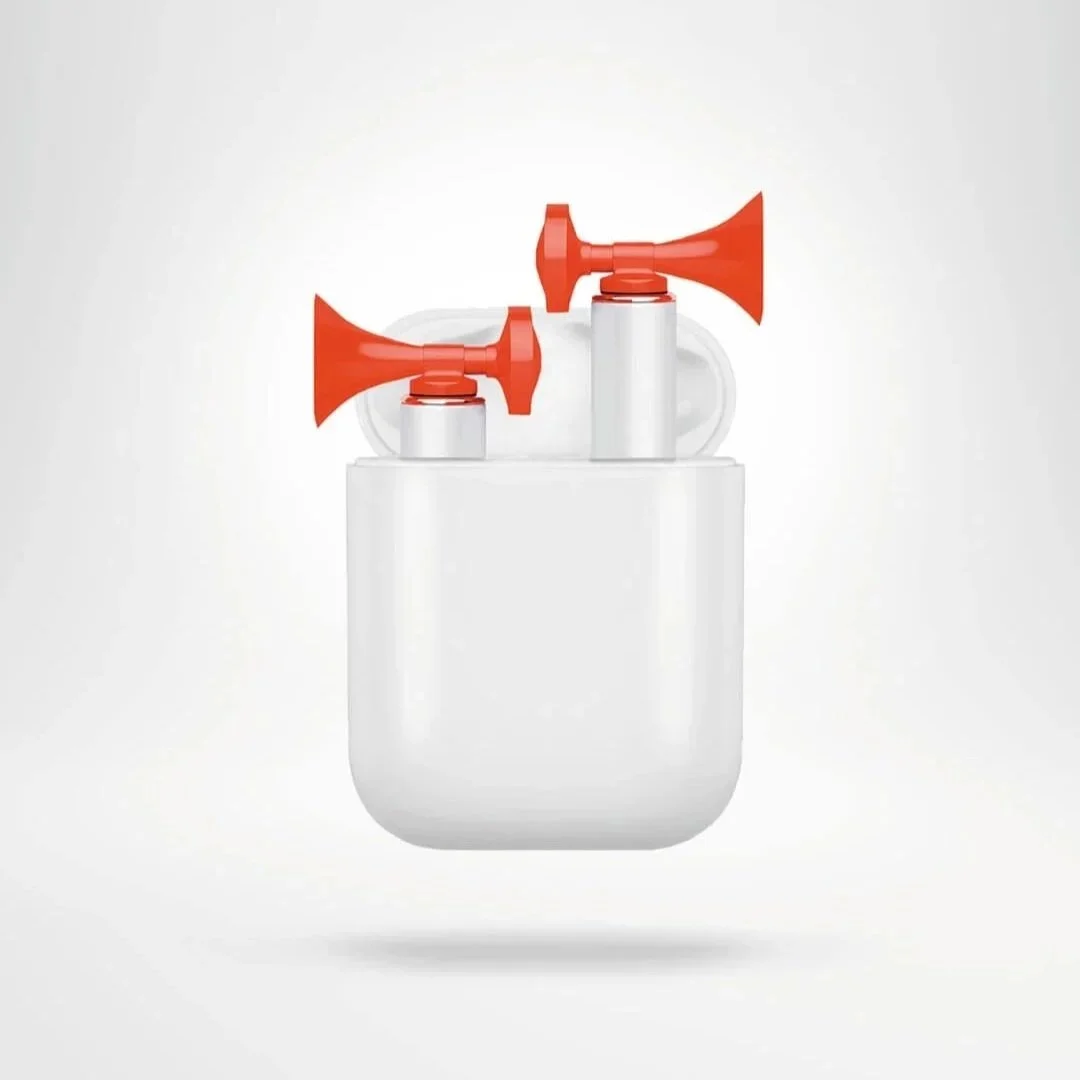By Kadyn Thorpe
Get Updates in Your Inbox
Misophonia is a brain disorder. For those who have it, certain noises will send them into a fight or flight type of response. We call these noises triggers. My triggers include loud eating, plates and silverware clanking, crunching, whispering, and many more everyday sounds. When I hear these sounds, it’s not just an annoyance that overtakes me; it’s rage.
When I was 12 years old I could tell there was something wrong with me. I remember riding in the car with my papa and having this feeling take over my body when he would chew on ice. It was a mixed feeling—rage, irritation, anxiety, and confusion all in one. My body would start to shake, and I would feel pain hearing the sounds coming from his mouth. I would start to distract myself from the pain by scratching my arms and legs, digging my nails into my skin. I know now that this is a response to the misophonia pain, to create another source of pain to try to ignore it.
Now in her 20s, Kadyn has been living with misophonia for a decade.
I went on like this for a year, listening to my friends and family eat with their mouths open, crunching on chips, and constantly hitting their plates with their forks while eating. I thought I was insane. I was too afraid to tell anyone. I couldn’t tell them that these noises put me in a feeling of anger and pain.
I started retreating to my room when dinner was ready, but that still didn’t help. All the triggers were amplified in my head. My family could be downstairs eating and I could be upstairs, in my room, door closed and television on, and still hear the sounds of forks hitting the plate and the crunching of food as they enjoyed their meal. It was torture.
I fought it till one day, while shopping with my mom. She was walking through the store chewing gum, smacking every second louder than an airhorn in my mind. I would start walking slower, trying to get away, because I didn’t know how else to deal with it. She got mad and I couldn’t hold it in anymore. She thought I was crazy, and hearing it said out loud, I couldn’t even believe myself. What person is so sensitive that they can’t deal with everyday sounds?
After that day, I finally decided to look up my symptoms and try to find answers. I know, I know, you shouldn’t google your symptoms, but I was desperate. I found a brain disorder called misophonia, which described exactly how I was feeling, so I shared it with my mom. After that we decided we should go to the doctor to figure out what exactly was happening to me.
An Early Misdiagnosis
We made an appointment with the doctor, and when the day finally came I was so excited. I wanted someone to tell me I wasn’t crazy and the feelings I had were valid. That did not happen.
When I started to explain to my doctor what was happening, he said I did not have misophonia (keep in mind, he had never heard of it before), but rather it was my hormones that were out of whack. I was starting puberty, and that seemed like the safe answer. Not wanting to accept that I had a brain disorder, I agreed with him. In order to “normalize” my hormones, my doctor put me on the pill. Yes, the birth control pill. I was 12.
As many people know, birth control messes with your hormones, especially when you keep changing it, and we did. Every three or so months, I changed my birth control. I would change it, be off it for a couple of months, and then back on another one. I was young, so I didn’t know taking the pill at the same time every day made a difference. I would forget one night and take it in the morning, I would skip days on end because I just didn’t care enough to continue it.
It messed with my emotions, I was depressed to the point where I didn’t want to get out of bed, I lost all my interest and hated everything. I fought so hard to go back to being the person I was before, the happy-go-lucky girl I used to be, but I couldn’t. And they just kept me on the pill, changing it every time I had an issue. My emotions got worse and my reactions to triggers stayed the same.
Once my family understood, minimally, what was happening to me they tried so hard to stop smacking their lips while they ate. We bought paper plates and plastic silverware to use during dinner time. They stopped eating salads, popcorn, chips, and other crunchy foods. They did everything right, but my triggers would surround me no matter what. At school, I would take a test in a silent room while the person next to me smacked on a piece of gum. Movie theaters were a nightmare—the crunch of the popcorn, the wrestling of the candy wrappers, the groups of people whispering. I refused to go.
These noises happen everywhere, and when you have misophonia, they are louder than normal. People can usually tune them out or they don’t even notice them. When you have misophonia it’s like these are the only sounds you hear, and once you hear them, you can’t drown them out until they stop.
A Diagnosis
Finally, more than a year later, we found a doctor who understood what misophonia was. We got an appointment, but my expectations were low. I had been through so much with changing medications, my body changing, and my emotions at an all-time low, all while simultaneously trying to figure out what was happening to me every day.
When I went to see the doctor, they gave me a piece of paper and told me to answer the questions. The questions asked me about certain noises, rating them on how much they hurt to hear and how I felt when I heard them. They asked how I felt mentally and physically on a daily basis and how I decided to cope with the issues I had been having. Once I finished, the doctor reviewed it and pulled me into her office to talk to me. She told me that based on my answers, there was no question that I had misophonia.
Afterward, she decided to give me a hearing test. I sat in a room facing a wall with headphones on and a button in each hand. For 10 minutes they played clicks in my ears, and I had to push the button when I heard it.
When I finished they explained to me that I have near perfect hearing, which is the reason everything was amplified in my head. Misophonia is the brain disorder where noises send you into rage, and the people who have it have great hearing.
She started to explain misophonia to me. For the first time, I had someone who knew exactly what I was going through. The doctor sat me down and told me exactly what was happening to me. She told me that it was like the wires in my brain were crossed, so when I heard these sounds, which she called triggers, my brain took it as a threat, sending me into fight or flight mode.
“It’s similar to your brain’s response to hearing fingernails scraping down a chalkboard,” she explained.
Then came the bad news—the news that there is no cure and that there is no good way to help this; I just have to live with it. Not to mention that this brain disorder causes people to develop depression and anxiety.
The next thing she said I remember perfectly. She told me how many people who have this disorder decide that it isn’t worth continuing, because they are having to deal with the fear of going anywhere, the fear that these emotions are going to take over your body simply because someone near you is just existing.
She told me, “I want you to know, your life is worth living, even if you think it’s too hard.” Those words have stuck with me since.
Living With Triggers
Although there are no cures for misophonia, there are ways that the noises can be limited. For me, it was hearing aids. These weren’t normal hearing aids—obviously I didn’t need noises to be louder; I needed them to be gone. These hearing aids played “white noise” in my ear, attempting to drown out my triggers, but it didn’t work. I could still hear. The triggers were quieter, yes, but not gone. Those emotions were still there, swallowing me whole.
As the years went by I figured out the places I couldn’t go to and stayed clear. I haven’t been to the movie theater in over five years. I tried a couple of times, but it always proved to be a bad idea. I would be begging for the movie to end so I could get out of there.
By no means did this ever get easier for me. I still have to muster up the courage to go to restaurants, stores, work even. Triggers surround me every day, and I have to act as if nothing is wrong.
I started keeping it more of a secret. I didn’t tell a lot of friends, and still to this day haven’t told many of my family members. I didn’t want to be treated differently. My family did everything they could to make me feel comfortable. But rather than me feeling loved and understood, I felt guilty. I didn’t want anyone to change their ways because I couldn’t deal with the sound. Even though the emotions and my reactions to triggers were valid, I still felt that I shouldn’t be upset by this—that these noises are a part of life, and I should appreciate that I could even hear. But I didn’t.
It’s been almost 10 years since I was diagnosed, and although the emotions my triggers bring are still the same, I can try to control them because I’ve accepted that this is something that is a part of me. I can’t change it and it will never go away, but I can make it my story. I can share the obstacles I’ve had to jump through in order to come to terms with what having misophonia means.
I can share my story with people who feel the same way. I can share my story with doctors, who would otherwise think these reactions and emotions are because of changing hormones. I can help people who, just like me, wanted validation, and didn’t get it for far too long.
I wrote this so people can understand what it’s like figuring out misophonia. By no means do I believe that this is how everyone’s misophonia story goes, but this is mine. Being able to understand misophonia is the first step to understanding how to diagnose it. Although misophonia is not as prominent as other brain disorders, it’s still here. It’s still impacting lives every day not only for the people who have it, but their friends and family as well. It’s not puberty, it’s not out of whack hormones; it’s a brain disorder that needs to be addressed.
Kadyn Thorpe lives in Colorado. This appeared in the Winter 2023 issue of Hearing Health magazine.







We are proud that Hearing Health Foundation-funded scientists are always well represented at Association for Research in Otolaryngology MidWinter Meeting.